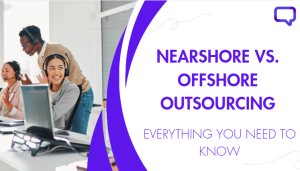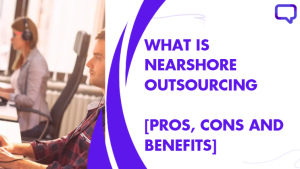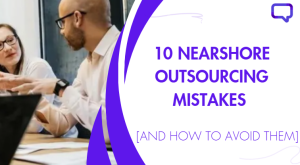
Did you know that only 8% of conversions occur after a customer interacts with a brand for the first time? Furthermore, more than 48% of conversions take place after a person interacts with a business between four to ten times! So if you’re new in the selling business and are wondering why people don’t buy, the first thing to do is to be patient. Establishing your brand takes time, but knowing on which aspects to focus surely minimizes the timeframe and gives you a huge competitive edge!
Table of Contents
Why People Don’t Buy
The success of your business is ultimately tied to this question only – why aren’t customers buying my products?
Sometimes it is because they are unaware of their requirement. Other times, it is because they don’t trust you enough to invest their money or time into your product or service.
There are multiple reasons why customers are not purchasing your stuff.
Recognizing which of these obstacles you’re facing with your sales is extremely important! So, keep reading and evaluate your weaknesses.
Six reasons why people aren’t purchasing your products – imbalanced price, lack of trust, lack of need, complexity, lack of urgency, and poor customer service.
Price – Customers Think You’re Too Expensive or Too Cheap
While this is mostly not the reason if you’re doing targeted marketing and have a specific customer base, it is definitely one of the reasons if you’re trying to sell to everybody.
If your product or service as compared to your competitors is expensive, people are more likely to refer to others.
That is unless you have a much better quality to offer, have proof of it, and have a targeted audience. If all those factors were already in place, then you wouldn’t be here reading why people don’t buy!
It is customer psychology 101 – price is based on the perception of its value.
A product or a service priced too high won’t sell simply because there’s no balance between the perceived value and the perceived cost of the product.
Similarly, a high price might also steer the customer into believing that there must be higher quality.
So make sure you don’t make your services or products too cheap – people won’t trust you purely out of instinct.
Just whatever you do, make sure you keep your price and quality balanced! Otherwise, make people trust you despite your prices.
Trust – People Are Unsure
A person comes across your company with a transactional intent – they want to take action.
Everything’s perfect – the product suits them, the price suits them. Only thing they’re unsure of is the quality.
Here’s where trust comes in. Customers won’t buy your products if they don’t see any social proof in the form of reviews and ratings.
You have to build trust in the beginning. You can do that by offering your new customers incentives and offers.
Make sure you offer those buyers the best quality of products and services so they leave good stars and ratings.
Furthermore, and I cannot stress this enough, make sure you have all channels of communication open.
If you don’t have social proof on your website, it is likely that customers will look for a mode to communicate with you.
They might need to ask questions or simply need help with the purchasing process.
Here’s where live chat comes in.
If you lack social proof of your products and services, having live chat on your company’s website benefits you by
- Helping the customer instantly if they have a query
- Proactively reaching out to the customer and guiding them
Read more benefits of live chat here: Benefits of Outsourcing Live Chat Operators
Need – People Don’t Need Your Goods
I know it sounds obvious that if someone doesn’t need a product, why would they buy it? But there’s more to it than that.
The question is, why is your product or service showing up to those who don’t need it? That’s on you, my friend!
Here’s a piece of advice – stop trying to sell to everyone.
I know it sounds like bad advice, but you have a much higher chance of selling to a smaller pool of targeted customers than to a larger pool of random audiences.
Make sure to advertise and market your goods to niche-specific people.
Not only will this save you tons of costs with online advertising but it will guarantee a higher return on investment (ROI).
Make sure you compile an appropriate plan of action before communicating with your prospects.
Utilize social media to your benefit. Research your potential buyer, look at their interests, and personalize their experience.
When advertising online, select audiences that share your interests, invest money in attractive advertisements, and watch your sales boost!
Complexity – The Sales Process is Difficult
Every stage of the customer journey requires equal attention.
People think that if we focus on bringing tons of leads, at least some of them will purchase our products. Wrong!
Every part of the funnel is equally important.
Bring in qualified leads, address their concerns and queries perfectly, and provide them with a seamless sales process.
If a prospect is really close to a purchase and they encounter a hurdle, they won’t even bother contacting you!
That’s because a broken sales process gives out a highly unprofessional vibe. You have to make sure that you appear professional in every aspect of your funnel.
The best way to ensure that is role-play. Pretend you are a customer interested in your product.
Go through the entire sales process step-by-step and see if you go through any difficulties whatsoever. Fix those.
If I were you I would go a step further by asking my team members to go through the process as well. People have different experiences.
In short, if you find yourself thinking why people don’t buy your stuff, maybe go through the buying process yourself.
Urgency – People Don’t Think They Need Your Product Now
If you don’t create urgency around your products or services, you’re missing out on a huge clientele.
People won’t buy your product if they think they don’t need it right now. You have to create urgency to push them!
The market is highly competitive. If your product comes across your prospects and lazily slides away, people won’t even bother to check it out.
That’s because there’s multiple competitors who are forcing people to buy their stuff right now. They are generating urgency among their customers.
Even if your product looks nice and worth having, why should people spend money on it at once? They can always buy it later when they have enough money, right?
Wrong again! It is highly possible that if a customer chooses to postpone a purchase, they’re either going to buy the same product somewhere else, or they won’t purchase it at all.
In such cases, you need a proactive outreaching plan of action.
Make sure that you’re sending out emails to such leads, giving them limited-time incentives and promotions, guiding them through the process, and creating urgency.
Here’s where good customer support comes in.
Customer Support – You Are Not Outreaching People
If you find yourself wondering why you’re unable to sell your products, maybe take a look at your customer service.
First, let’s see how bad customer service impacts a business as a whole:
- Decline in company reputation
- Loss of customer loyalty
- Loss of sales and conversions
- Reduced repeat business
If your customer support isn’t useful for the people, it will cause a direct decline in your company’s reputation.
Remember that word of mouth is your greatest weapon. People share their experiences with others and if those experiences are negative, you can keep wondering why people don’t buy.
The same thing causes a loss of customer loyalty. Customers with a bad experience with your company won’t look forward to doing business with you again.
Both these factors combined will lead to a loss in sale conversions. Eventually, your existing customers will also forsake you and your business will suffer a loss.
Good customer experience has a direct impact on increased sales and revenue.
If people aren’t buying, use email and live chat to outreach to them. Whenever a visitor hops on your website, make sure to be proactive and guide them.
If you’ve got a potential lead, email them with limited-time promotions and offers to create urgency.
If they contact you back, help them by means of expert customer support agents to make sure they don’t come across any hurdles.
In case you don’t have an experienced in-house customer support team, you could outsource it to third-party companies such as HiredSupport at affordable rates.
Recommended: The Ultimate Guide to Customer Support Outsourcing
Conclusion
In conclusion, understanding why people don’t buy your products isn’t rocket science. It simply requires an evaluation of a few parameters mentioned above.
People don’t buy because of parameters that include price, trust, need, complexity, urgency, and customer support. Of course, there’s more factors as well but these are the most important ones, in my opinion.
By focusing on providing excellent customer service, offering competitive pricing, providing clear and concise information about products and services, and creating a sense of urgency, businesses can overcome many of the obstacles that prevent customers from making a purchase.
Outsource your Customer Support with us
Frequently Asked Questions (FAQs)
The most common reason which stops people from buying is the price. Unless there’s a proper balance between the goods’ price and perception of value built through trust, prospects will be hesitant to buy.
The most common reasons include price, lack of trust, lack of urgency, complex sales process, poor customer support, and lack of need.
It’s simple – invest in marketing. If you want customers to buy your product, you need to sell it better. Make sure you have social proof, good customer service, high-quality products, and incentives for the customers.
Note: Shamoon Younus contributed to a previous version of this post.



